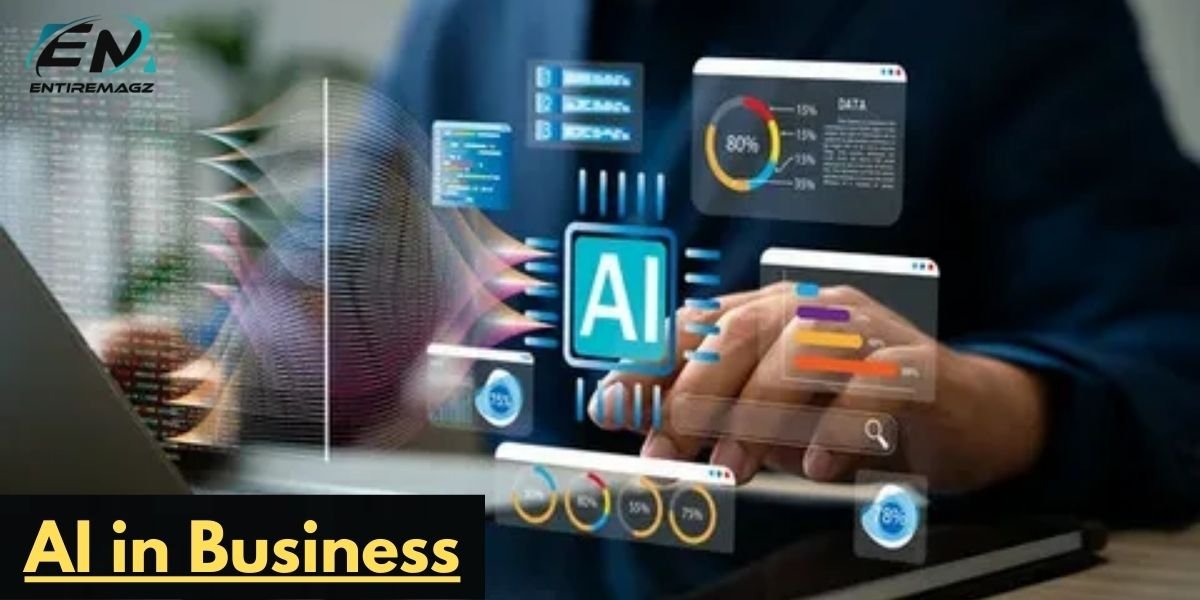Artificial Intelligence (AI) is driving a shift in business operations worldwide due to its ability to automate, innovate, and outperform competitors. The global AI market is projected to grow from $279.22 billion in 2025 to $1.81 trillion by 2030.
The surprising annual growth rate is 32.9%. AI has become a universal organization at about 78%, and now AI use is taking over in business functions as well. The dramatic increase in AI has risen from 55% a year earlier.
Large and major industrial enterprises are using AI for optimized processes, predictive analytics, customer services, and market campaigns. They are not using AI only in manufacturing, but also in finance and retail.
In 2025, 83% of businesses are considering AI as a top priority in their marketing strategies. AI is no longer a trend but is a crucial element for business and survival. Industries utilizing AI are experiencing higher productivity and supportive user experiences.
Generative AI is a subset transforming content creation in businesses and maintaining the social media presence across various platforms.
What is AI in Business?
Artificial Intelligence (AI) in business is often known as the application of AI technologies such as machine learning, computer vision, and natural language processing (NLP) to optimize business operations and functions, including decision-making, user engagement, and customer satisfaction.
AI enables computer systems for repetitive tasks that require human intelligence. AI at its core performs data analysis, speech recognition, visualization, and automation in decision-making.
This is a transformational technology that’s helping businesses with repetitive processes and extracting actionable insights.
The businesses can handle massive datasets and predictive future outcomes with innovations and efficiency. 90% of businesses are utilizing AI for strategic business structures.
The adoption of AI has doubled since 2017, and companies are planning to invest in AI technologies in the coming years. AI’s importance spans multiple industries and sizes.
They include research, user experience, and development processes. The companies that are ignoring AI are losing competitiveness and relevance in market growth.
Applications of AI in business
Artificial Intelligence (AI) applications are now the central and core part of improving efficiency, productivity, and competitiveness across different business industries.
AI technologies use languages to process and transform business functions. The key Applications of AI in business include
Customer service and User Support
Machine learning chatbots and virtual assistants improve customer interactions and provide 24/7 user support. They provide any services to customers, whether it’s about any query, a personalized experience, or resolving a query.
52% of companies are using AI content creation and investing in conversational AI for real-time support.
This is helping businesses with faster services and satisfaction. 52% of telecommunications organizations use conversational AI for faster and consistent customer interactions.
| 📍It is estimated that every 20 customer interactions will be AI-assisted by 2025. It reflects the AI’s dominant role in customer service support. |
Market Development & Sales
AI algorithms analyze the customers’ data and deliver personalized product recommendations for targeted advertisements. It improves the conversion rates.
In fact, 68% of companies are now seen to increase content marketing ROI since they adopted AI tools. 60% of U.S. firms use AI generative tools for content creation and maintaing social media presence.
optimised operations and Process Automation
AI systems help in repetitive tasks and processes, including management of inventory, financial issues, financial forecasting, supply chains, and logistics.
It reduces the errors with operational cost efficiency. The manufacturing sector alone is estimated to gain $3.78 trillion from AI by 2035.
Analytics & Reporting
AI helps businesses with quick data processes. AI generates actionable insights for smarter and strategic decisions.
78% of organizations and businesses are using AI in the areas of data analysis and decision-making. 72% of executives consider AI a critical business advantage.
Workforce Strategy and HR Development
AI facilitates the recruitment process by screening resumes. It also helps in predicting candidates’ success and streamlining hiring processes. It also reduces the hiring bias.
Product lifecycle and Development
AI increases the innovation in trends by analyzing the customer feedback and market style to inform the areas of improvement in products.
What are the benefits of AI in business?
Maximum productivity and increased workflows
AI systematises the time-consuming task and frees employees’ focus for creative and complex work. For instance, AI-based service personnel can handle more queries per hour compared to traditional methods. It can improve the quality of work.
The generative AI tool improves the performance by an average of 66%, with higher gains in complex tasks.
Smart decision-making and Data Analysis
AI can analyze a large amount of data and detect complex patterns rapidly, which a human resource can miss.
This helps organizations to make more informed and accurate decisions in the areas of finance, marketing, and risk management.
For instance, AI can detect fraud and assess the risk according to market trends. This approach minimizes human errors and helps in strategic investments with better outcomes.
Optimized customer experience
AI-based solutions help in personalized interactions based on customer behavior and experience. The AI chatbots recommend seamless experiences.
84% of the sales agents use AI reports to increase the ratio of customer interactions. 90% of the professionals seek help from AI for faster customer service. AI-based support minimizes the wait time, which improves satisfaction.
Innovative and continuous innovation
AI increases innovation by processing and responding to data analysis for new opportunities.
For instance, AI inspects customer trends and maximizes product development by providing a competitive edge in large markets.
Economical, friendly, and ROI
AI-powered technologies are helping organizations with flawless workflows and faster decision-making with personalized automation.
AI automation reduces the human resource cost and boosts the supply chains by over 5%. Businesses are gaining higher marketing sales and revenue through AI technologies.
| 📍25% of businesses are using AI to fill talent gaps, while 29% is the quarter of their workforce is upskilled in AI. This shows AI is not a catalyst, but it is transforming the AI generative skills. |
Final words
AI-based applications are not only amplifying business operations, improving decision-making, customer satisfaction, customer support, and boosting innovative ideas. Businesses combined with AI to improve profits, safety, and market trends.
AI is not just a technical tool but a critical priority for digital and dynamic businesses. AI is not just a technical tool, but it’s now a strategic imperative for digital and dynamic businesses.
AI is reducing costs and providing market leadership opportunities for businesses. AI’s not a futuristic concept but a driving force in businesses for operational efficiency, smarter decisions, and proactive insights.
It fuels the revenue growth with optimized and targeted marketing strategies. AI has become commonplace for businesses to embrace the top position in the long run.

